Miami tourist destination now a Zika hotspot
- Published
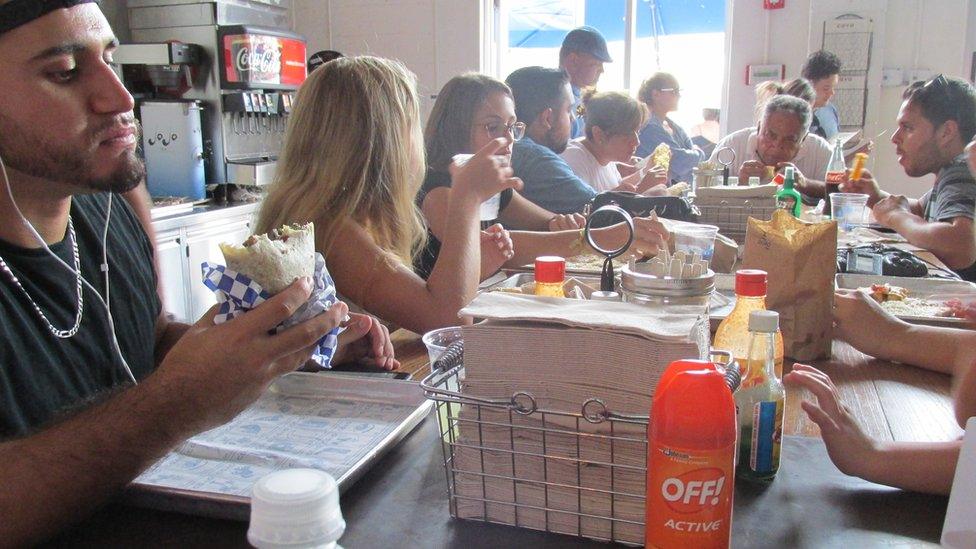
Restaurant owner Sven Vogtland placed mosquito repellent on all his tables
Things are not normal in the Wynwood Art District in downtown Miami, where mosquito repellents are placed next to napkins and hot sauce in one restaurant.
Three TV stations have set up a presence on Wynwood's main avenue.
US health officials issued an "unprecedented" alert on Monday warning pregnant women not to come here. Governor Rick Scott confirmed that 15 cases of the Zika virus have been detected in the last week.
Zika causes severe birth defects, including microcephaly, according to the Center for Disease Control (CDC).
CDC officials say it is the first such warning for a US location in their 70-year history.
Still, the mood in this tourist neighbourhood remains relaxed.
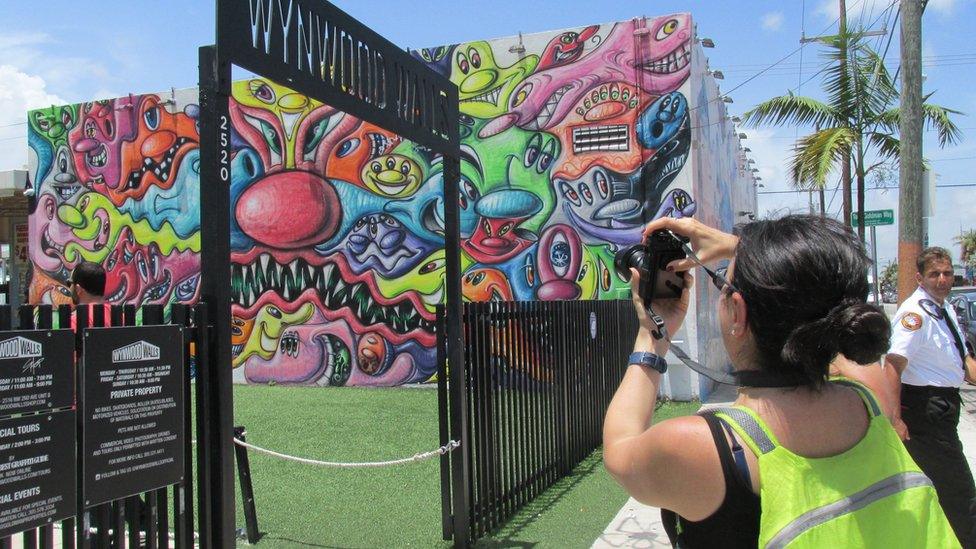
Some tourists were unfazed by news of Zika in the famously artistic area
Despite the warnings, young people still gather outside hip coffee shops and restaurants.
Once an industrial and often troubled area, Wynwood transformed after galleries, developers and street artists arrived in the early 2000s.
Several visitors from Latin American countries, where thousands of Zika cases were reported this year, told the BBC that they don´t feel especially afraid.
"In Venezuela, the Zika is fairly spread. We just put on some repellent," says Lisbeth Alcala, an US resident who is walking around Wynwood with visiting relatives.
Guatemalan Gigi Vasconez, 19, knows about the alert, but still wants to take her portrait against one of Wynwood's famous graffiti walls.
"It is just very common in Guatemala" she says.
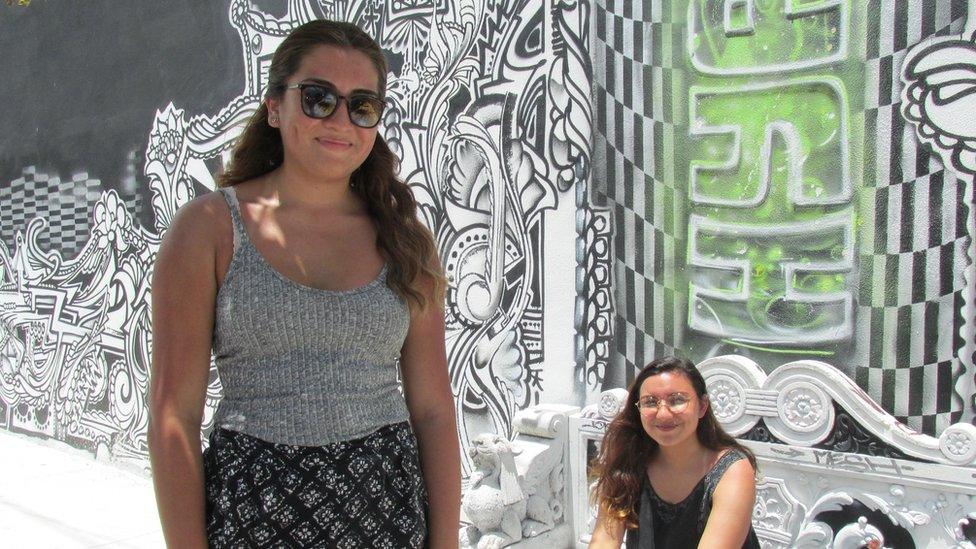
Tourist Gigi Vasconez says Zika is very common in her native Guatemala
Other international visitors were less sanguine.
Cedric and his family came to Miami from France.
"Are you talking about the disease in Rio de Janeiro?" he asks, when told about the presence of Zika in the neighbourhood.
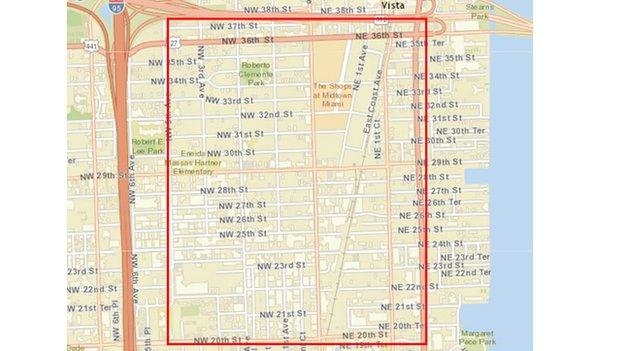
The CDC designated this area of Miami as a place where Zika is being spread in the US
"If we were not scared before, we are now!"
Then, they ask about which nice art galleries to visit.
Zika is spread by the mosquito Aedes Aegypti, the same responsible for Dengue and Chikungunya.
That mosquito, which breeds in stagnant water, is the target of a fumigation campaign.
Neither Zika nor insecticide spraying has stopped most businesses from operating in the neighbourhood.
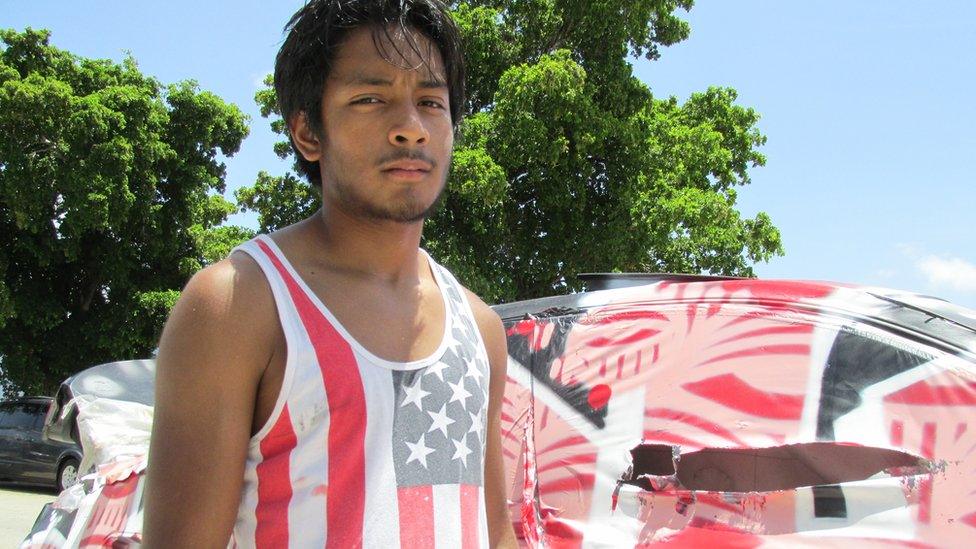
Jeffrey Romero still preferred to go sleeveless while working outdoors
"We won't stop working, although we are being careful," says Jeffrey Romero, 19, who works in the garage that his family founded in 1985.
Although he says he's afraid of getting the virus, he didn't use any repellent and wore a sleeveless American flag shirt while repairing cars outdoors.
Authorities are worried that the efforts made so far are not working. They have decided to start aerial spraying.
On Wednesday, they started using insecticide called Naled that, according to the CDC, has already been used to control Aedes Aegypti in the US.
The CDC says residents can go on with their lives, but that those with an allergic reaction to Naled should stay home.
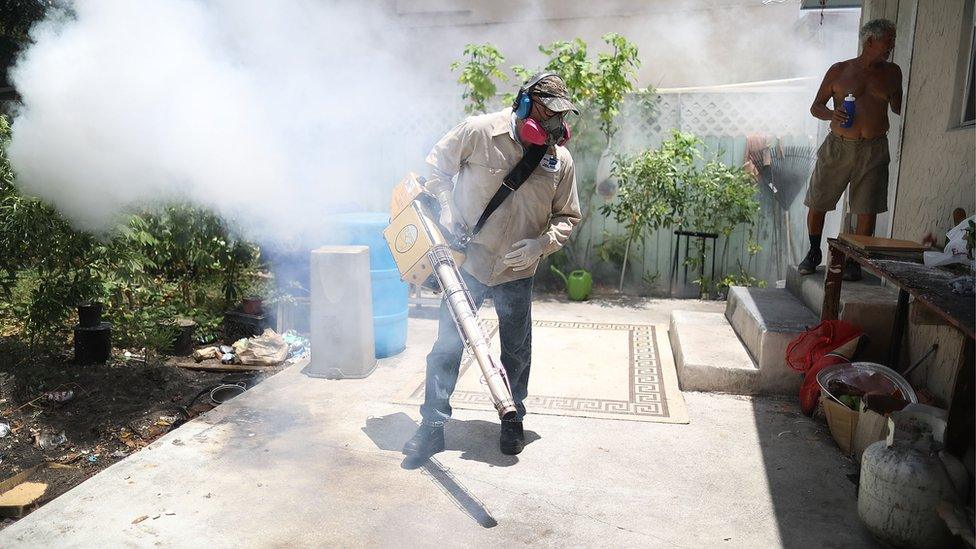
A Miami-Dade County mosquito control inspector fumigates the Wynwood neighbourhood
Sven Vogtland, one of the owners of a popular Mexican restaurant, has decided to take his own steps to ensure that his business will not be affected by the recent outbreak.
He placed mosquito repellent on the tables for the customers to use. And he fumigated his property before the government did.
"It is worrying that the government has recommended that people don´t visit Wynwood," he says, though he believes it is still too early to tell if the number of visitors has decreased because of the alert.
On most weekends, he serves 2,000 customers. He is waiting to see if this weekend will be any different.